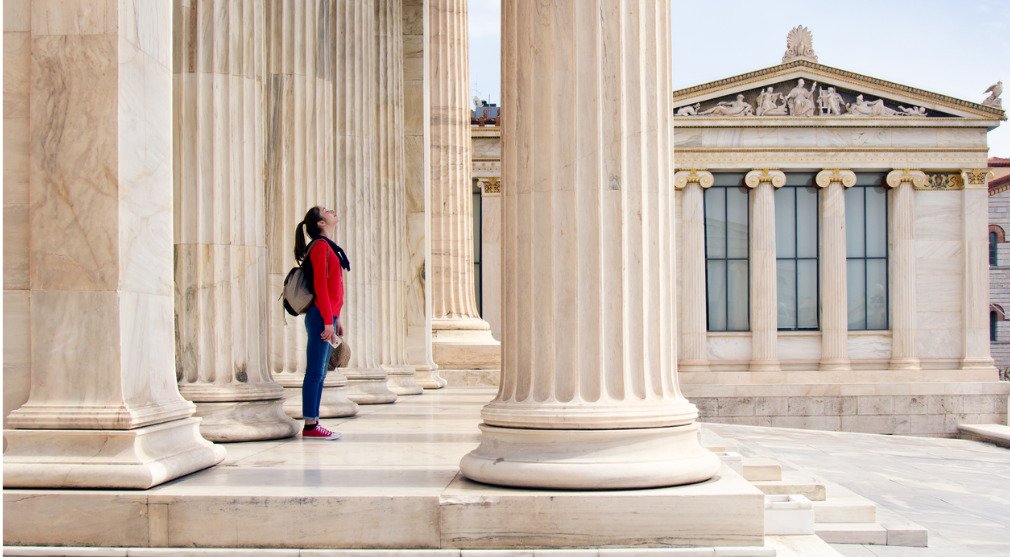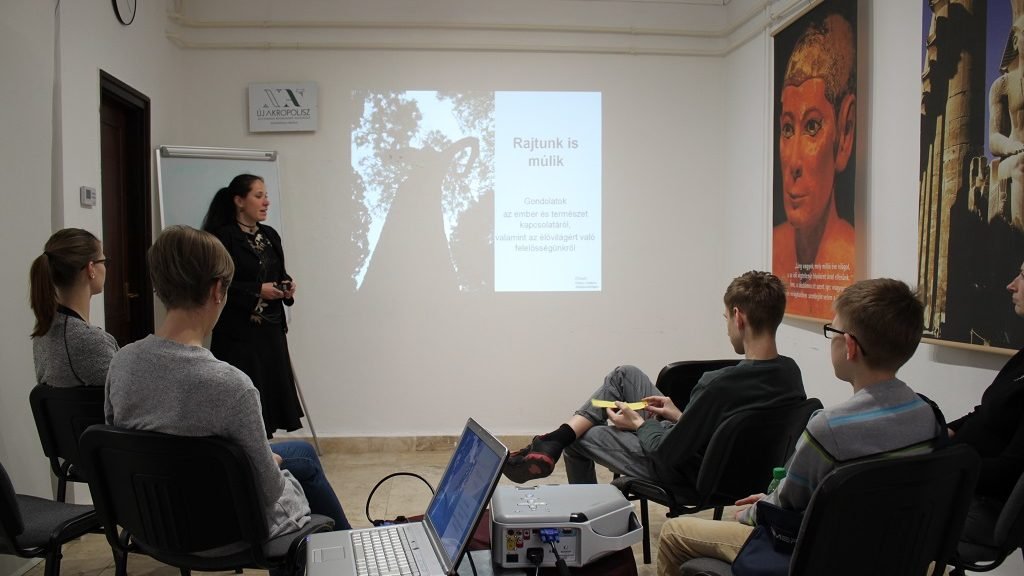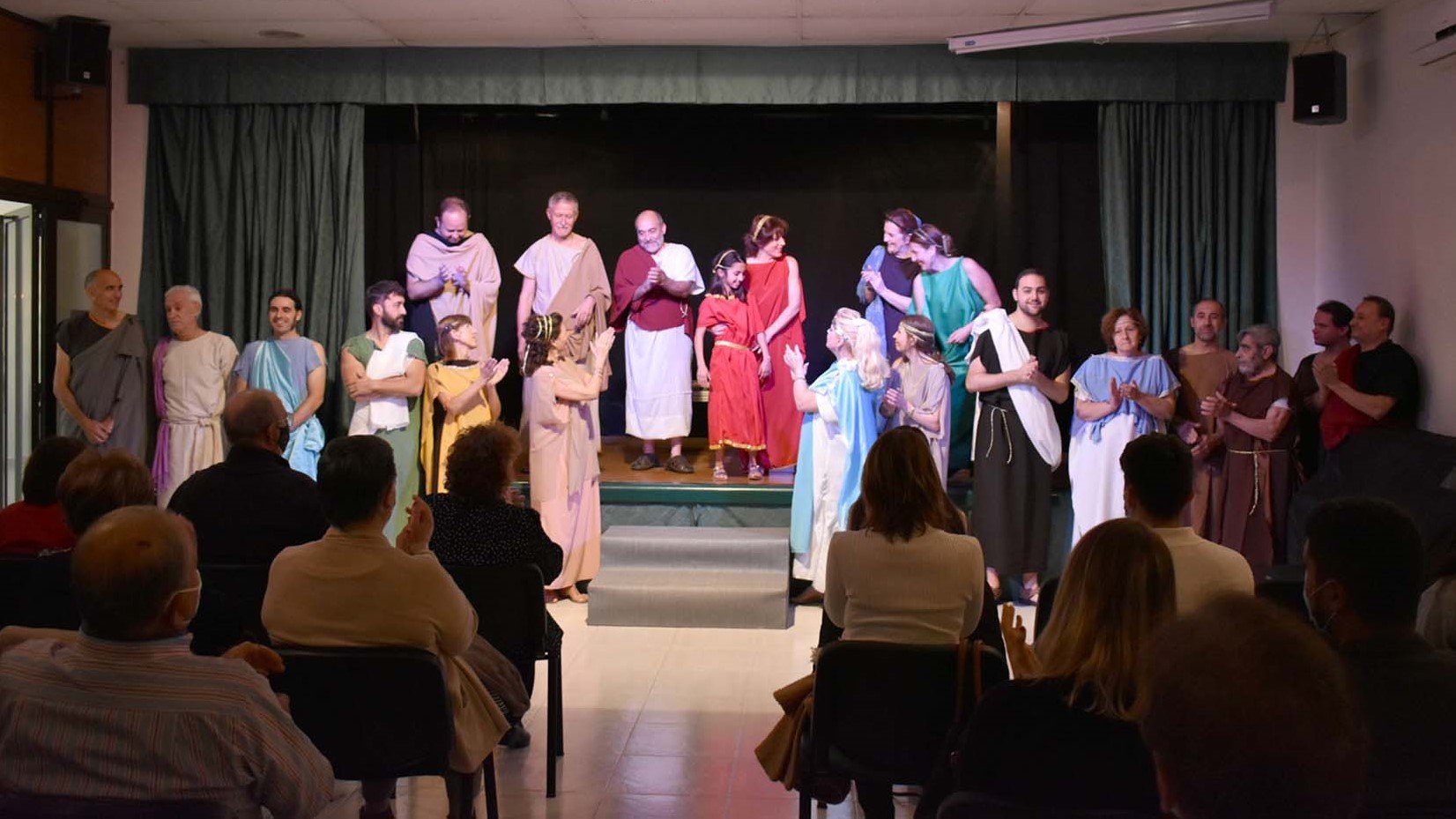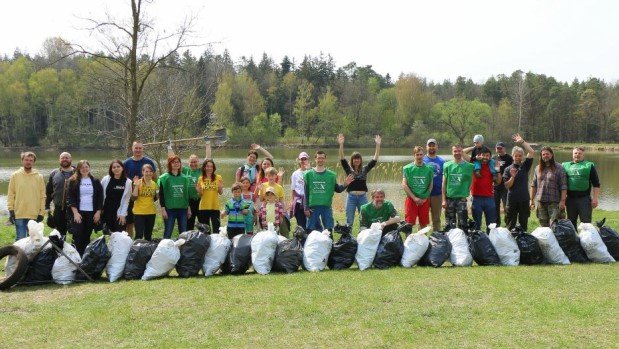
New Acropolis is a School of Philosophy that promotes culture and practices volunteering.
It proposes an ideal of permanent values to contribute to individual and collective evolution.

Foundation, Organization and Structure
Foundation
When was New Acropolis founded?
New Acropolis was founded in 1957 in Buenos Aires, Argentina by professor Jorge Ángel Livraga Rizzi. From 1992 to 2020 Delia Steinberg Guzmán acted as the International Director. Since 2020, Mr Carlos Adelantado Puchal has taken over the responsibility of president of International Organization New Acropolis.
New Acropolis is registered in the International Register of Associations of the Kingdom of Belgium, based in Brussels, as a non-profit international association.
Organization
Structure
What is the structure of New Acropolis?
Its structure guarantees respect for the diversity, autonomy and initiative of each of its member associations. It allows operations to be carried out with total independence of political, religious or financial interests. The associated members are held accountable by the authorities of their own country and follow the international regulations in the area of civil society associations.
According to its statutes, the General Assembly of New Acropolis is composed of one representative from each of the federated associations. The members of the Board of Directors, who are subject to re-election at regular intervals and are responsible for coordinating and implementing the resolutions passed at each annual meeting of the Assembly, are elected from among the most qualified members of the Assembly.
New Acropolis supports itself by a decentralized financial system, with regular audits. Its income and financial sustainability are based on four pillars:
- Educational courses and sales of cultural products made at our centres.
- All members pay a monthly subscription, which entitles them to take part in all scheduled activities and have access to IONA’s international network of cultural centers.
- The support of volunteers, together with a small number of efficient administrative staff.
- The support and sponsorship of private companies and other institutions.
This income is allocated to projects and the costs of premises, supplies and advertising.
Funding
How is New Acropolis funded?

The symbolism of the name New Acropolis
In ancient Greece, the Acropolis designated the highest part of the city. There the contact between the visible and insible was established.
It is about a symbolic place for our imagination which inspires the path towards the highest part of ourselves.
We consider that our world needs new acropolises, not made of stone but of human beings, raised in the heart of our cities to grow internally and reestablish the profound ties which can unite us with other human beings and nature around us.

Our principles
Fraternity
1. To promote an ideal of fraternity based on respect for human dignity, beyond any differences of gender, culture, religion, social class, etc.
It is necessary to promote respect for different identities and traditions, and at the same time to strengthen unity beyond differences, to harmonize people, ideas and feelings in an enriching and open coexistence.
The strength of this ideal of fraternity lies more in what unites us than in what separates us. It is firmly based on a recognition of universal values, which, while respecting diversity, transcend local practices and customs and come together in a set of common ethical principles that are inherent in the dignity of every human being. This ideal promotes respect for and promotion of human rights, as well as the recognition of certain principles of universal ethics.
The love of truth and knowledge sets out from the legitimate aspiration to develop one’s own discernment and understanding of the world and oneself. We understand philosophy as an axis that connects the different facets and angles of human knowledge.
Philosophy can bring together the sources of the past and the present in that global, broad and integrating vision, so that it becomes a real force for progress, which seeks not only to explore the paths of life, but to go deeply into its ultimate ends, and tries to combine all aspects of knowledge and experience.
Knowledge
2. To encourage the love of wisdom through the comparative study of philosophies, religions, sciences and arts, in order to achieve a knowledge of the human being, nature and the universe.
Development
3. To develop the best part of the human being by promoting each person’s fulfilment as an individual and as an active member of society. To act in harmony with Nature in order to improve the world.
Our work results in better individuals who bring sustainability to social development. The human being still has an enormous latent potential. To know it and develop it is one of the fundamental pillars of life itself and provides a source of lasting satisfaction.
The achievement of harmony between thought, feeling and action is a goal for every human being. A balanced and all-round development of oneself, and the actualization of the best qualities and values of our human nature, are probably the only guarantee of moving towards a better world.
Areas of Work

Philosophy
Philosophy has always been a search for spiritual truth, a process of going more deeply into the knowledge of nature, the human being and the universe. Every act of searching is at the same time an exercise of freedom of consciousness in opposition to ignorance, confusion and the prejudices that prevent calm and deep reflection.
For us, Philosophy is an innate attitude in human beings. Our task is to enable that innate attitude to be expressed in actions that will allow us to develop our full potential and improve our world. We propose a practical philosophy that will be useful for each individual and for society.
We do this not only through reading, studying and theoretical knowledge, but also by setting ourselves the goal of learning to live well, with strength and efficiency, at every moment in our lives. Taking advantage of the opportunities that arise and learning something positive even from adversity.
This is what we mean by "Philosophy as a way of life".
We are working to improve the world and the human being by means of Philosophy in the classical tradition: a philosophical quest that offers answers to contemporary problems.

Culture
In New Acropolis we acknowledge the need of preserving and developing, through an integrative approach: the arts, science, mysticism and politics, as fundamental aspects which build a civilization. Through a wide variety of culture related activities, we build ways to help develop these four elements with the common denominator of Philosophy.
Culture enlarges our understanding of life and the world and makes us closer to other people through a spirit of respect, solidarity and understanding. The ultimate end is reach ethical, moral and permanent values which reinforce human dignity and the protection of its most basic rights of life and coexistence.
At New Acropolis, we are dedicated to promoting dialogue through every means available to us, based on the vision that dialogue is essential in our society, especially as we contend with the challenges of isolation and a pervasive sense of emptiness.
Culture is expansive and includes various disciplines: History, Anthropology, Physics, Arts, Sports, and many others… through these disciplines, we aim to explain the events and uncertainties of our times.

Volunteering
For New Acropolis, Volunteering is the practical way of embodying and applying Philosophy and Culture. It is the natural expression of generosity and service to society which is assumed by each idealist, as a responsibility of active and conscious participation to contribute to the common good.
All the activities carried out by New Acropolis in the world, in its different fields of action, are achieved thanks to the work of thousands of volunteers.
Through volunteering, we demonstrate our commitment to society by engaging in humanitarian, ecological, and social projects that support those in need.
The volunteering programs of the IONA offer society the opportunity to develop values of solidarity, tolerance and respect for others, which make us better as individuals and help to make the world a better place.
